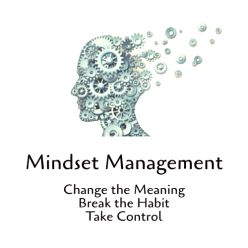Your mindset is the foundation of your success, happiness, and overall well-being. It influences how you handle challenges, setbacks, and opportunities. By learning to manage your mindset effectively, you can transform your life and achieve your goals with greater ease.
What is Mindset Management?
Mindset management is the practice of consciously shaping your thoughts, beliefs, and attitudes to foster personal growth and resilience. It involves shifting from negative or limiting beliefs to empowering ones that support your ambitions.
Key Strategies for Effective Mindset Management
1. Develop a Growth Mindset
Psychologist Carol Dweck introduced the concept of a growth mindset—believing that your abilities and intelligence can be developed through effort and learning.
- Embrace challenges as opportunities to grow.
- Replace “I can’t” with “I can learn how.”
- Celebrate progress, not just results.
2. Reframe Negative Thoughts
Your thoughts shape your reality. When you notice self-doubt or negativity creeping in, challenge those thoughts and replace them with empowering ones.
- Instead of “I’ll never succeed,” try “I am learning and improving every day.”
- Focus on solutions rather than problems.
3. Practice Gratitude
Gratitude shifts your focus from what’s lacking to what’s abundant in your life.
- Keep a gratitude journal and write down three things you’re thankful for daily.
- Express appreciation to others—it strengthens relationships and positivity.
4. Surround Yourself with Positivity
Your environment greatly impacts your mindset.
- Engage with people who inspire and uplift you.
- Limit exposure to negativity, such as toxic relationships or excessive news consumption.
5. Take Care of Your Mental and Physical Health
A strong mindset requires a healthy foundation.
- Exercise regularly—it boosts mood and reduces stress.
- Get enough sleep to enhance cognitive function and emotional balance.
- Practice mindfulness or meditation to stay present and focused.
6. Set Clear Goals and Take Action
Clarity in your goals fuels motivation and progress.
- Define what success looks like for you.
- Break big goals into smaller, achievable steps.
- Track progress and adjust strategies when necessary.
7. Learn from Failures and Keep Moving Forward
Failures are stepping stones to success. Instead of seeing them as setbacks, view them as lessons.
- Analyze what went wrong and what can be improved.
- Adapt and refine your approach rather than giving up.
Final Thoughts
Your mindset is a powerful tool that determines how you experience life. By managing it intentionally, you can create a future filled with success, happiness, and fulfillment. Take small steps every day to cultivate a positive, resilient, and growth-oriented mindset, and watch your life transform.
What mindset shift has helped you the most? Share your thoughts in the comments below!
